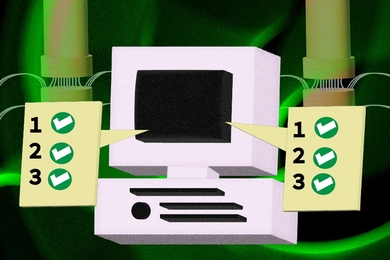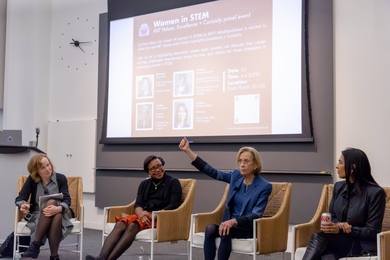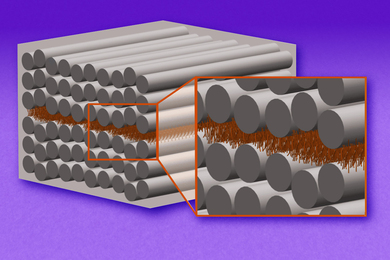Corning Inc. has announced a $10 million research agreement with the Whitehead Institute for Biomedical Research to develop the next generation of DNA microarrays and other tools for the post-genome world.
In this world, knowledge from the complete sequence of the human genome will be used to accelerate gene discovery, disease diagnosis, drug discovery and development of therapies custom-tailored to fit patients' genetic profiles.
Scientists in academia and industry are uniquely poised to make such discoveries, now that they have access to the complete sequence of the human genome. As they gear up to enter the new era of genomics-guided research and medicine, what scientists need the most are the latest in technologies and tools.
The Corning-Whitehead alliance will aid the development of such technologies and tools -- the first in line being the development of DNA microarrays or DNA chips, which allow scientists to analyze thousands of genes at a time and are providing the first glimpse of the promise of genomics-based biology.
The collaboration brings together top researchers in two different disciplines. Whitehead is world-renowned for its research in molecular biology and genomics, while Corning is a leader in using advanced materials to manufacture products for scientific, semiconductor and environmental markets.
Last month, the company announced it had entered the DNA microarrays market by using a proprietary high-volume process to manufacture microarrays.
The development of genomics-based tools represents an emerging and burgeoning genomics market. The market for DNA microarrays is expected to grow from $250 million today to $1 billion in 2005. DNA chips represent the first in line of tools that will fuel the new revolution in biotechnology and biomedicine. The Corning-Whitehead alliance will extend to the next generation of genomic tools, including protein arrays that will help analyze the activity of thousands of proteins at a time. Researchers predict that the market for proteomics -- protein array-based discoveries -- will be even bigger.
"Corning and Whitehead share a mission to advance biomedical science through the development of cutting-edge technologies," said Professor of Biology Richard Young, who will lead the project at Whitehead. "There is a critical need for researchers in academia and industry to collaborate in the battle against human disease in order to develop technologies with the potential to revolutionize medical science."
"My laboratory is particularly interested in how human cells respond to infection," added Professor Young, a Whitehead member. "We intend to use technologies developed through the joint initiative with Corning to lay a foundation for better drugs and vaccines. At least six additional Whitehead principal investigators will take part in the collaboration. Our investigators will focus on topics ranging from cancer and AIDS research to the battle against life-threatening fungal and bacterial diseases."
"The Whitehead Institute is one of the leading research organizations in the area of genomics," said R. Pierce Baker, senior vice president of Corning's Life Science Division. "Our agreement is an example of Corning's continued commitment to developing innovative research tools that enable and accelerate the life science discovery process, and that will ultimately improve lives. Our combined research efforts will provide a foundation for continued growth and development in the field of life sciences." The division has been manufacturing and supplying laboratory products for the life sciences research industry since 1915.
Corning, founded in 1851, manufactures optical fiber, cable and photonic products for the telecommunications industry, as well as high-performance displays and components for television and other communications-related industries.
A version of this article appeared in MIT Tech Talk on November 1, 2000.





